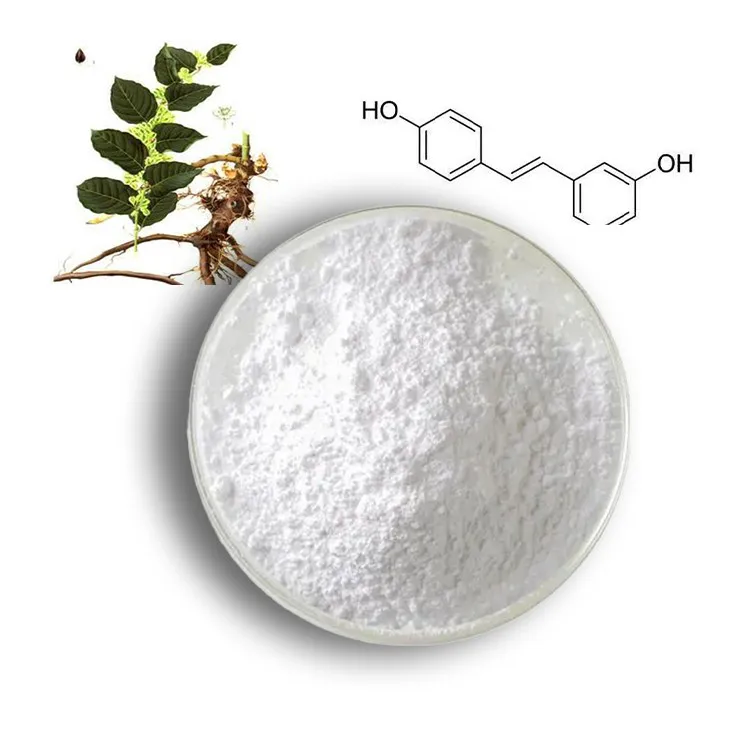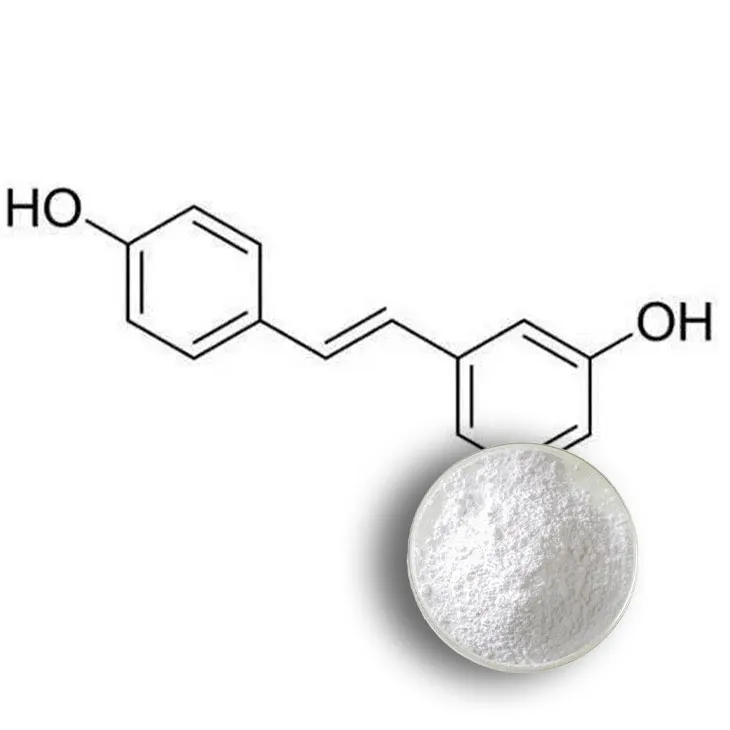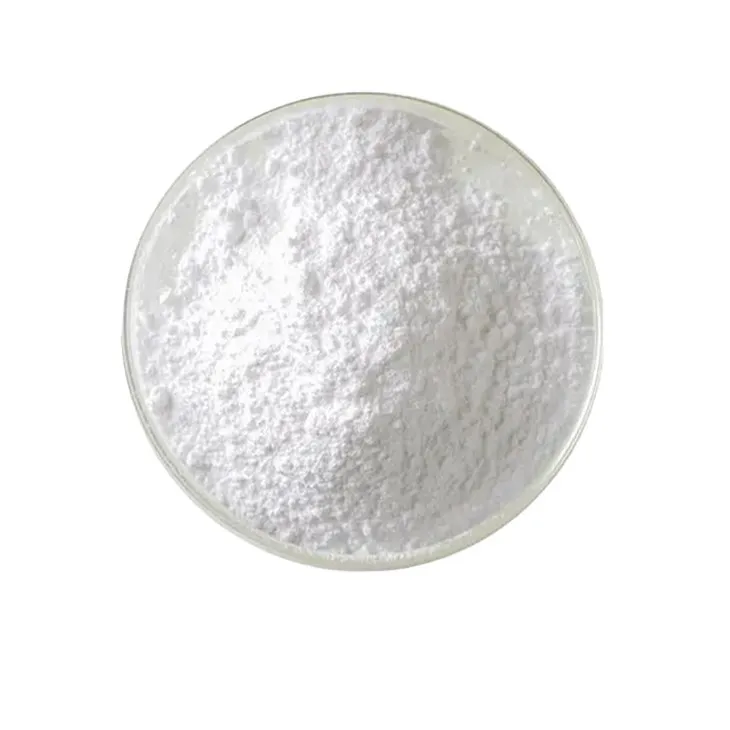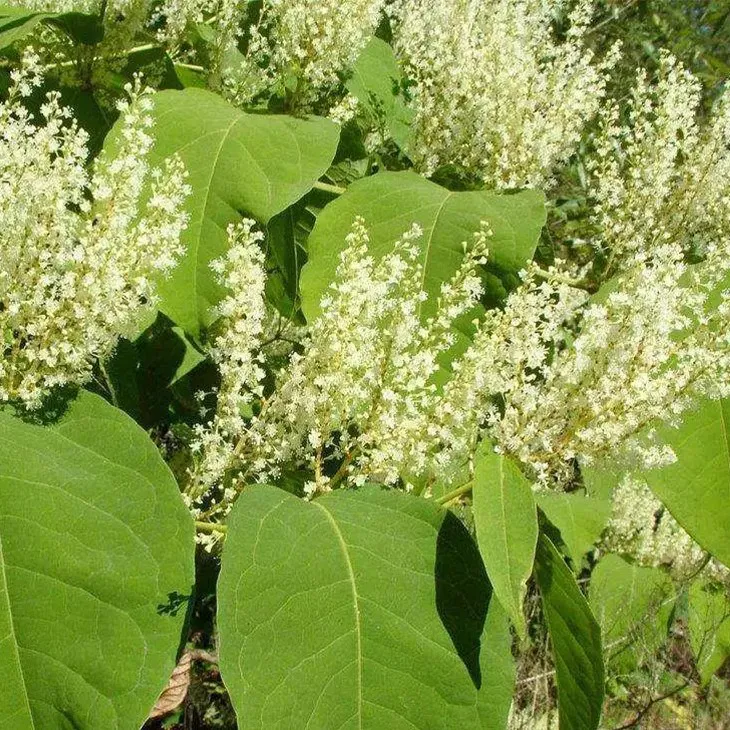- 0086-571-85302990
- sales@greenskybio.com
10 Amazing Health Benefits of Resveratrol Extract
2024-11-13

1. Introduction to Resveratrol extract
Resveratrol extract, particularly the white form, has been steadily gaining recognition in the field of health and wellness. It is a natural compound that can be found in various plants, such as grapes, berries, and peanuts. Over the years, scientific research has uncovered a plethora of health benefits associated with resveratrol, making it an increasingly popular supplement for those looking to improve their overall well - being.

2. Resveratrol as a Powerful Antioxidant
What are antioxidants? Antioxidants are substances that can prevent or slow damage to cells caused by free radicals. Free radicals are unstable molecules that are produced in the body during normal metabolic processes or as a result of external factors like pollution, smoking, and UV radiation.
How does resveratrol act as an antioxidant? Resveratrol has the ability to neutralize free radicals. It donates electrons to these unstable molecules, thereby stabilizing them and preventing them from causing oxidative stress. Oxidative stress has been linked to a wide range of health problems, including heart disease, cancer, and neurodegenerative disorders. By acting as an antioxidant, resveratrol helps to protect the body's cells and tissues from damage, reducing the risk of developing these diseases.
Studies have shown that resveratrol can increase the activity of antioxidant enzymes in the body, such as superoxide dismutase (SOD) and catalase. These enzymes play a crucial role in the body's antioxidant defense system, further enhancing the antioxidant effects of resveratrol.

3. Blood Sugar Regulation
Maintaining stable blood sugar levels is essential for overall health. Resveratrol has been found to play a significant role in blood sugar regulation.
Improving insulin sensitivity One of the ways resveratrol helps in blood sugar control is by improving insulin sensitivity. Insulin is a hormone that is responsible for regulating blood sugar levels. In individuals with insulin resistance, cells do not respond properly to insulin, leading to elevated blood sugar levels. Resveratrol can enhance the ability of cells to respond to insulin, allowing for better uptake of glucose from the bloodstream and thus reducing blood sugar levels.
Reducing glucose production in the liver The liver is an important organ involved in blood sugar regulation. It can produce glucose and release it into the bloodstream. Resveratrol has been shown to inhibit the production of glucose in the liver. This helps to prevent excessive glucose from entering the bloodstream, especially during periods of fasting or between meals, further contributing to stable blood sugar levels.

4. Support for Healthy Skin
Resveratrol offers several benefits for the skin, making it a valuable component for maintaining healthy and youthful - looking skin.
Anti - aging effects One of the main reasons for skin aging is oxidative stress. As mentioned earlier, resveratrol is a powerful antioxidant. When applied topically or consumed orally, it can help to combat oxidative stress in the skin. This can reduce the appearance of wrinkles, fine lines, and age spots, giving the skin a more youthful and radiant appearance.
Protection against UV damage Exposure to ultraviolet (UV) radiation from the sun can cause significant damage to the skin, including sunburn, premature aging, and an increased risk of skin cancer. Resveratrol has been found to have photoprotective properties. It can help to protect the skin from UV - induced damage by reducing the production of reactive oxygen species (ROS) in the skin cells. Additionally, resveratrol may also enhance the skin's natural defense mechanisms against UV radiation.
Anti - inflammatory properties in the skin Inflammation in the skin can lead to various skin problems, such as acne, eczema, and psoriasis. Resveratrol has anti - inflammatory properties that can help to soothe inflamed skin. It can inhibit the production of inflammatory mediators in the skin, reducing redness, swelling, and itching associated with skin inflammation.

5. Reducing the Risk of Heart Disease
Heart disease is one of the leading causes of death worldwide. Resveratrol has shown promise in reducing the risk of developing heart disease through several mechanisms.
Lowering cholesterol levels High levels of cholesterol, particularly low - density lipoprotein (LDL) cholesterol (often referred to as "bad" cholesterol), are a major risk factor for heart disease. Resveratrol has been shown to reduce LDL cholesterol levels in the blood. It can also increase high - density lipoprotein (HDL) cholesterol (the "good" cholesterol), which helps to remove LDL cholesterol from the bloodstream, further reducing the risk of plaque formation in the arteries.
Improving blood vessel function Resveratrol can help to relax blood vessels, improving blood flow. It does this by increasing the production of nitric oxide in the endothelial cells that line the blood vessels. Nitric oxide is a signaling molecule that causes blood vessels to dilate, reducing blood pressure and improving overall cardiovascular function.
Anti - platelet aggregation Platelets are small blood cells that play a crucial role in blood clotting. However, excessive platelet aggregation can lead to the formation of blood clots, which can block blood vessels and cause heart attacks or strokes. Resveratrol has been shown to inhibit platelet aggregation, reducing the risk of blood clot formation.
6. Potential Anti - cancer Properties
While more research is needed, resveratrol has shown potential in the fight against cancer.
Inducing cancer cell death Resveratrol has been found to induce apoptosis, or programmed cell death, in cancer cells. This means that it can target and kill cancer cells without harming normal cells. Different types of cancer cells, including breast, prostate, and colon cancer cells, have been shown to be sensitive to resveratrol - induced apoptosis.
Inhibiting cancer cell proliferation In addition to inducing cell death, resveratrol can also inhibit the growth and proliferation of cancer cells. It can interfere with the cell cycle of cancer cells, preventing them from dividing and multiplying. This can slow down the progression of cancer and potentially prevent the spread of cancer cells to other parts of the body.
Anti - angiogenic effects Cancer cells need a blood supply to grow and spread. Resveratrol has anti - angiogenic properties, which means it can prevent the formation of new blood vessels that supply nutrients and oxygen to cancer cells. By cutting off the blood supply, resveratrol can starve cancer cells and limit their growth.
7. Boosting Brain Health
Resveratrol also has beneficial effects on brain health, which is becoming increasingly important as the population ages.
Neuroprotective effects As an antioxidant, resveratrol can protect brain cells from oxidative damage. Oxidative stress in the brain has been associated with neurodegenerative diseases such as Alzheimer's and Parkinson's. By reducing oxidative stress, resveratrol may help to prevent or slow down the progression of these diseases.
Enhancing cognitive function Some studies have suggested that resveratrol can improve cognitive function, including memory, attention, and learning. It may do this by increasing blood flow to the brain, promoting the growth of new neurons, and enhancing synaptic plasticity, which is the ability of neurons to form new connections.
Reducing inflammation in the brain Inflammation in the brain can also contribute to neurodegenerative diseases. Resveratrol's anti - inflammatory properties can help to reduce brain inflammation, providing further protection for brain health.
8. Anti - inflammatory Benefits
Resveratrol's anti - inflammatory properties are not limited to the skin or the brain. It has systemic anti - inflammatory effects throughout the body.
Chronic inflammation has been linked to many diseases, such as arthritis, diabetes, and heart disease. Resveratrol can inhibit the production of inflammatory cytokines, which are signaling molecules that promote inflammation. By reducing inflammation, resveratrol can help to alleviate the symptoms of these inflammatory diseases and may also prevent their development.
For example, in arthritis, resveratrol can reduce joint pain and swelling by suppressing the inflammatory response in the joints. In diabetes, its anti - inflammatory effects may contribute to better blood sugar control and reduced complications associated with chronic inflammation.
9. Improving Athletic Performance
Resveratrol may also have implications for athletic performance.
Increasing mitochondrial function Mitochondria are the powerhouses of the cells, responsible for producing energy. Resveratrol has been shown to enhance mitochondrial function, increasing the production of adenosine triphosphate (ATP), which is the main energy currency of the body. This can provide more energy for physical activities, potentially improving athletic performance.
Reducing muscle fatigue During exercise, the build - up of lactic acid in the muscles can cause muscle fatigue. Resveratrol can help to reduce muscle fatigue by improving the clearance of lactic acid from the muscles. It may also enhance muscle recovery after exercise, allowing for more frequent and intense training sessions.
Enhancing endurance Some studies have indicated that resveratrol can improve endurance in athletes. It may do this by increasing oxygen utilization in the muscles, enabling athletes to perform at a higher intensity for a longer period of time.
10. Impact on Overall Well - being
Resveratrol's multiple health benefits contribute to an overall improvement in well - being.
By reducing the risk of various diseases, such as heart disease, cancer, and neurodegenerative disorders, resveratrol can help individuals to live longer and healthier lives. Its positive effects on blood sugar regulation, skin health, and anti - inflammatory responses also play a role in enhancing quality of life.
Moreover, the potential benefits for brain health and athletic performance can lead to improved mental and physical function, respectively. All of these factors combined make resveratrol a valuable compound for those interested in optimizing their health and well - being.
11. Conclusion
Resveratrol extract offers a wide range of amazing health benefits. From its role as a powerful antioxidant to its potential in reducing the risk of numerous diseases and improving various aspects of health, it is clear that resveratrol has much to offer. However, it is important to note that while resveratrol shows great promise, more research is still needed to fully understand its mechanisms of action and to determine the optimal dosage for different health conditions. Nevertheless, incorporating resveratrol - rich foods or supplements into a healthy lifestyle may be a beneficial step towards achieving better health and well - being.
FAQ:
What is resveratrol extract?
Resveratrol extract is a compound that is found in various plants, such as grapes, berries, and peanuts. It has been the subject of much research due to its potential health - enhancing properties.
How does resveratrol extract act as an antioxidant?
Resveratrol extract acts as an antioxidant by neutralizing free radicals in the body. Free radicals are unstable molecules that can cause damage to cells and DNA. By donating electrons to these free radicals, resveratrol helps to prevent oxidative stress and reduce the risk of various diseases associated with it.
Can resveratrol extract really help regulate blood sugar?
Yes, resveratrol extract may help in blood sugar regulation. It has been shown to improve insulin sensitivity, which allows cells to better respond to insulin and take up glucose from the bloodstream. This can be beneficial for people with diabetes or those at risk of developing the condition.
What are the ways resveratrol extract supports healthy skin?
Resveratrol extract supports healthy skin in several ways. It has antioxidant properties that can protect the skin from damage caused by free radicals, such as UV radiation and pollution. It may also help to reduce inflammation in the skin, improve collagen production, and enhance skin elasticity.
Which diseases can resveratrol extract reduce the risk of?
Resveratrol extract has been associated with a reduced risk of certain diseases, such as heart disease, cancer, and neurodegenerative diseases. It may help to prevent the development of these diseases by reducing inflammation, oxidative stress, and cell damage.
Related literature
- The Health Benefits of Resveratrol: A Review of the Current Literature"
- "Resveratrol and its Role in Disease Prevention"
- "Antioxidant Properties of Resveratrol: Implications for Health"
- ▶ Hesperidin
- ▶ Citrus Bioflavonoids
- ▶ Plant Extract
- ▶ lycopene
- ▶ Diosmin
- ▶ Grape seed extract
- ▶ Sea buckthorn Juice Powder
- ▶ Fruit Juice Powder
- ▶ Hops Extract
- ▶ Artichoke Extract
- ▶ Mushroom extract
- ▶ Astaxanthin
- ▶ Green Tea Extract
- ▶ Curcumin
- ▶ Horse Chestnut Extract
- ▶ Other Product
- ▶ Boswellia Serrata Extract
- ▶ Resveratrol
- ▶ Marigold Extract
- ▶ Grape Leaf Extract
- ▶ New Product
- ▶ Aminolevulinic acid
- ▶ Cranberry Extract
- ▶ Red Yeast Rice
- ▶ Red Wine Extract
-
Centella Asiatica Extract
2024-11-13
-
Acerola Juice Powder
2024-11-13
-
Alfalfa Meal
2024-11-13
-
Shikone Extract
2024-11-13
-
Clove Powder
2024-11-13
-
Plantain extract
2024-11-13
-
Cocoa Extract
2024-11-13
-
Green Tea Extract
2024-11-13
-
Green coffee bean Extract
2024-11-13
-
Medicinal Marshmallow Extract
2024-11-13





















